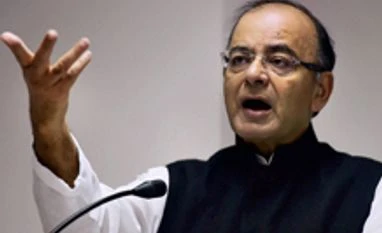India's current account deficit will "hopefully" be less than 1% of gross domestic product (GDP) in the fiscal year that begins in April, Finance Minister Arun Jaitley said at the Lok Sabha today.
The deficit narrowed to 1.6% in the October-December quarter from 2% a quarter earlier on the back of slumping oil prices. Analysts said it should move into surplus in early 2015 for the first time in eight years.
With a number of key reforms bills stuck, government today appealed to the opposition not to play "obstructionist" as the country has the "historic opportunity" to grow and the GDP is expected to go beyond 8% next year, overtaking China.
Jaitley also rejected the charge that the government is pro-rich as it had proposed reduction of corporate tax from 30% to 25% and sought to take the battle to the Congress camp, saying he had borrowed the idea from Direct Taxes Code prepared by UPA's Finance Minister P Chidambaram.
He strongly justified the government's quest for opening more sectors for foreign investment, saying more and more funds are required to create jobs, develop infrastructure and undertake social welfare programmes.
In a veiled message to RBI, Jaitley also made a case for reduction in interest rates, warning that the growth will otherwise suffer.
He was replying to a debate in Lok Sabha on Appropriation Bill which was later passed by a voice vote, thus completing the first phase of the budgetary exercise in the lower House.
"This is a historic opportunity where India has real chance of growing. The world also sees India as a bright spot. We must use this opportunity," the Finance Minister said, adding "I appeal with folded hands... Let politics of obstructionsim not go to next stage."
While talking about the "historic opportunity", he said, "Do we go on this course. How can I obstruct this growth?
He said the global economy situation suits India as Brazil faces challenge, Europe has slowed down and China's 7% is new normal. "IMF says India will overtake China," he added.
Jaitley's comments assume significance as some key economic reforms legislations like Land Acquisition Bill, Coal Bill and Mines and Minerals Bills are stuck in Rajya Sabha.
)